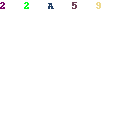 “Puede que tengas que enfrentarte a muchas derrotas pero nunca debes acabar derrotado”. The hard life of this African-American woman is summarized in this phrase. She was born in St. Louis (Missouri) the 1928. Her childhood was full of hard times. Her brother and she had to live for a long time with her grandmother because her parents’s divorce. The 10 years spent with her grandmother in Stamps (Arkansas) provided her the most of the materials she would use in her famous autobiography: I know why the caged bird sings. In the book describes what it meant to be a colored girl in the state of Arkansas in the decades of 30 and 40.
“Puede que tengas que enfrentarte a muchas derrotas pero nunca debes acabar derrotado”. The hard life of this African-American woman is summarized in this phrase. She was born in St. Louis (Missouri) the 1928. Her childhood was full of hard times. Her brother and she had to live for a long time with her grandmother because her parents’s divorce. The 10 years spent with her grandmother in Stamps (Arkansas) provided her the most of the materials she would use in her famous autobiography: I know why the caged bird sings. In the book describes what it meant to be a colored girl in the state of Arkansas in the decades of 30 and 40.
When she was 8 years old she was raped by her mother’s boyfriend. After revealing the name of the attacker, Angelou had to go through trials and later for the murder of the rapist caused by her uncles. So, she realized that her words had the power to kill and she spent 5 years in silence. Decades later, the writer said: “Escribo para recuperar la voz negra y para todos aquellos oidos que quieran oirla”. Later, during her adolescence she had a brief drop in prostitution and she also got into the drug world.
But her political activism and her commitment to literature enabled her to get out of this deep well. Over the 60 and 70 decades Angelou was involved in the struggle for civil rights of her people. On the other hand, she traveled to several African countries where she worked as editor of newspapers and collaborate on humanitarian projects.
In addition to his autobiography, Angelou is a great writer of poems, here goes a poem based on his book:
I KNOW WHY THE CAGED BIRD SINGS
The free bird leaps
on the back of the win
and floats downstream
till the current ends
and dips his wings
in the orange sun rays
and dares to claim the sky.
But a bird that stalks
down his narrow cage
can seldom see through
his bars of rage
his wings are clipped and
his feet are tied
so he opens his throat to sing.
The caged bird sings
with fearful trill
of the things unknown
but longed for still
and is tune is heard
on the distant hillfor the caged bird
sings of freedom.
The free bird thinks of another breeze
an the trade winds soft through the sighing trees
and the fat worms waiting on a dawn-bright lawn
and he names the sky his own.
But a caged bird stands on the grave of dreams
his shadow shouts on a nightmare scream
his wings are clipped and his feet are tied
so he opens his throat to sing.
The caged bird sings
with a fearful trill
of things unknown
but longed for still
and his tune is heard
on the distant hill
for the caged bird
sings of freedom.
References:
- All the information about Maya Angelou appearing in this post has been taken from the book Entre dos mundos (Aitor Ibarrola)
- All about I know why the caged bird sings (Literature Study Guides, it doesn´t appear the author and the date): http://www.sparknotes.com/lit/cagedbird/
- Poems of Maya Angelou, third poem of 20 (two dates: Friday, January 03, 2003; and Tuesday, May 31, 2011): http://poemhunter.com/poem/i-know-why-the-caged-bird-sings/
Filed under: Anthropology, English Language, History, Humanities, Multiculturality
![]()